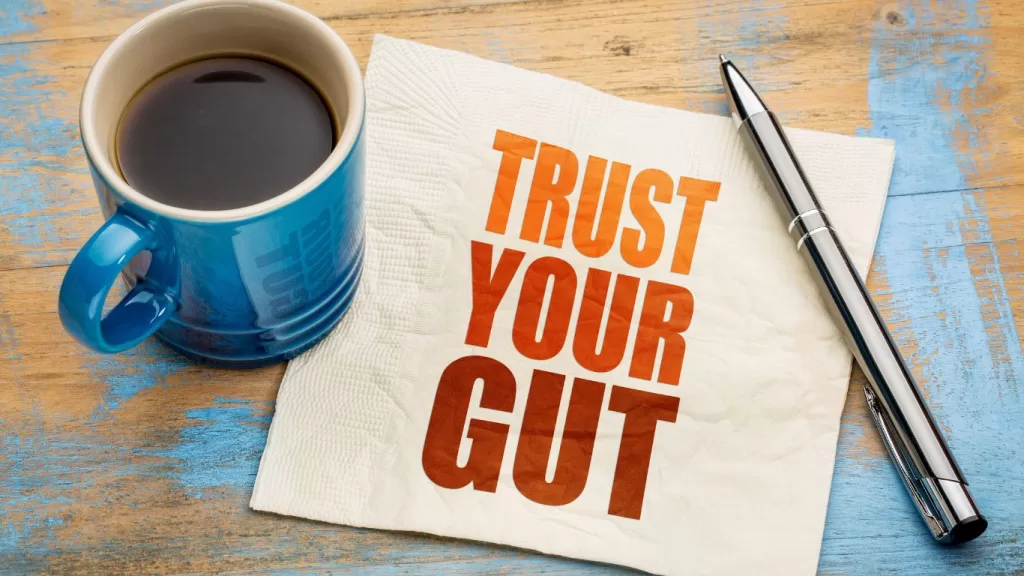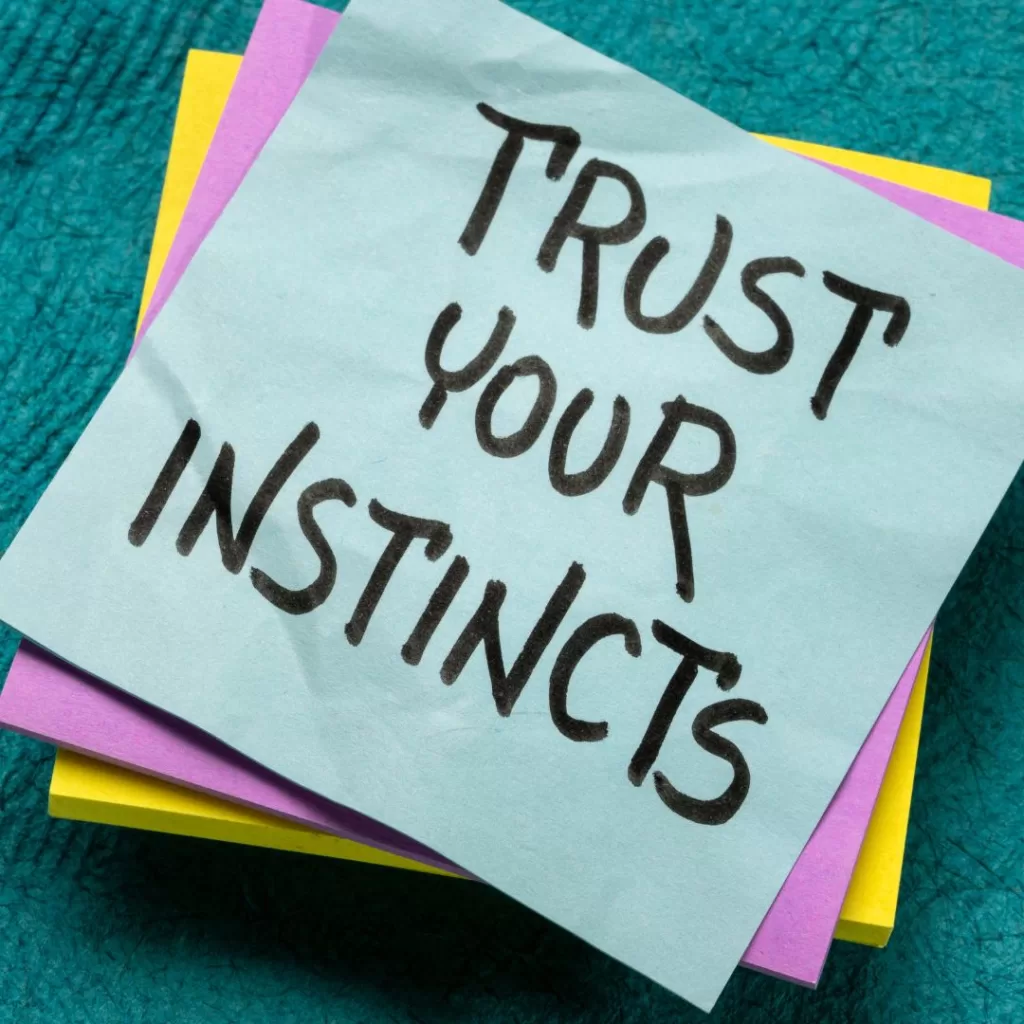Trusting Your Gut: The Science and Power of Intuition in Self-Defense

Your Instincts Are Talking. Are You Listening?
Have you ever had a moment where something felt off, but you brushed it aside? Maybe you told yourself you were overreacting or didn’t want to seem rude. But when it comes to your safety, trusting your gut is one of the most important things you can do. That instinct exists for a reason. It’s your body’s way of warning you that something isn’t right. Learning to listen to it without hesitation can be the difference between staying safe and walking into danger.
I know this firsthand. I wrote about my boss in my previous blog about a “bad feeling” I had when going to pick up my paycheck. Something in my gut told me not to go, but I ignored it. I told myself I was just being paranoid. Nothing would happen, right? That’s what I wanted to believe. But I was wrong, and I paid for it. I learned the hard way that my intuition was trying to protect me.
This post will break down what intuition actually is, the science behind it, and why trusting your gut is one of the most important self-defense skills you can develop.
What is Intuition?

Intuition is often described as a “gut feeling” or an unexplainable sense of knowing something without conscious reasoning. It’s not magic, it’s pattern recognition. Your brain constantly absorbs information, picking up on subtle details that your conscious mind may not immediately recognize. When something doesn’t align with what feels normal or safe, your brain sends a warning signal: That’s your intuition talking.
The Science Behind It: Why Your Brain Knows Before You Do
Your intuition isn’t just a feeling, it’s backed by neuroscience. Studies show that the amygdala, the part of your brain responsible for detecting threats, reacts to danger before your rational mind has time to process it. This is why you might feel uneasy about a situation before you can pinpoint why. Your subconscious mind is picking up on inconsistencies in body language, tone, or environmental cues, even if you aren’t consciously aware of them.
A study from Gavin de Becker’s book, The Gift of Fear, found that in the vast majority of violent encounters, victims reported having a bad feeling beforehand but ignored it. Why? Because we’re socially conditioned to be polite, not make assumptions, and not overreact. But when it comes to your safety, there’s no such thing as overreacting.
How Intuition Develops Over Time
Some people seem to have sharper intuition than others, but the truth is, it can be trained. The more you practice situational awareness and personal safety, the stronger your instincts become.
- Experience Matters: The more you expose yourself to different environments and situations, the better your brain gets at recognizing what is normal versus what is off.
- Training Sharpens Instincts: Self-defense training, firearms training, and scenario-based drills help reinforce intuitive decision-making. Your brain learns what potential threats look like, allowing you to react faster.
- Listening Strengthens It: The more you act on your intuition, the more refined it becomes. Ignoring it, however, can dull it over time.
Real-World Examples & Statistics
Your gut instincts aren’t just personal feelings. They are backed by data. Here are some compelling examples:
- A study from the U.S. Department of Justice found that nearly 50% of assault survivors reported sensing danger beforehand but didn’t act because they didn’t want to seem rude or dramatic.
- In a survey of sexual assault survivors, 80% said they had an uneasy feeling before the attack but ignored it.
- Gavin de Becker’s research found that people who trust their intuition in dangerous situations are significantly more likely to escape harm compared to those who hesitate or rationalize their fears away.
These statistics highlight a painful truth: We often know something is wrong but convince ourselves otherwise.
How to Strengthen Your Gut Instincts
Trusting your intuition is a skill, and like any skill, it can be developed. Here’s how:
- Acknowledge That Your Gut Feeling is Valid
- If something feels off, assume it is off until proven otherwise.
- You don’t need hard evidence to justify protecting yourself.
- Practice Situational Awareness
- Pay attention to your surroundings and the people in them.
- Identify exits and potential escape routes in any setting.
- Listen to Your Body’s Physical Reactions
- Tightness in the chest, stomach discomfort, a racing heart, these are physiological responses to perceived threats. Don’t dismiss them.
- Get Comfortable With Setting Boundaries
- If someone or something makes you uneasy, remove yourself from the situation. You don’t owe anyone an explanation.
- Take Self-Defense and Awareness Training
- Training builds confidence, making it easier to trust your instincts and take action when necessary.
Final Thoughts
Your intuition is a built-in alarm system designed to protect you. Don’t silence it. Even if you’re wrong, it’s always better to be safe than sorry.
If I could go back, I would have listened to my gut about my boss. I would have asked myself: What’s the worst that can happen if I don’t go? versus What’s the worst that can happen if I do? When it comes to personal safety, the answer to that question makes the choice easy.
Never discount that feeling in your gut. It’s there for a reason. Listen to it, trust it, and let it guide you to safety.
Have you ever ignored your intuition and regretted it? Or did trusting it help you avoid a dangerous situation? Share your story in the comments. I’d love to hear how intuition has played a role in your life.
Stay connected with us on Facebook and Instagram for more self-defense tips, safety insights, and empowering content tailored to help women walk their path with confidence. Let’s keep the conversation going. Join us today!






Responses